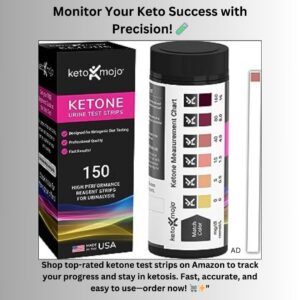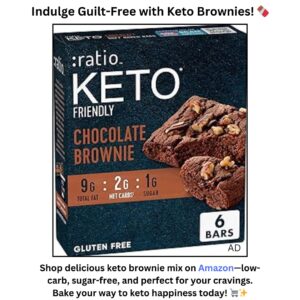Healthy Fats vs. Bad Fats: The Facts

Fats are a crucial component of our diet, playing various roles in maintaining health. However, not all fats are equal. Differentiating between healthy and bad fats can significantly impact your overall well-being and help prevent chronic diseases. In this detailed guide, we’ll delve into the types of fats, their effects on your body, and practical advice on healthy fats vs bad fats.
What Are Healthy Fats?
Healthy fats, also known as unsaturated fats, are vital for numerous bodily functions and overall health. These fats support brain function, hormone production, and cellular health. They can be classified into two primary types:
- Monounsaturated Fats: These fats are renowned for their heart-health benefits. They help lower low-density lipoprotein (LDL) cholesterol—the “bad” cholesterol—while increasing high-density lipoprotein (HDL) cholesterol—the “good” cholesterol. Monounsaturated fats are commonly found in:
- Avocados: Rich in potassium and vitamins, avocados offer a creamy texture to dishes while providing a heart-healthy fat boost.
- Olive Oil: Extra virgin olive oil is a staple in Mediterranean diets and is known for its anti-inflammatory properties and antioxidants.
- Nuts: Almonds, cashews, and macadamias are packed with monounsaturated fats and can be a satisfying snack or salad topper.
- Seeds: Pumpkin seeds and sesame seeds add crunch and nutritional benefits to your meals.
- Polyunsaturated Fats: These fats include essential fatty acids that your body cannot produce on its own, making them essential to your diet. They are divided into:
- Omega-3 Fatty Acids: Fatty fish like salmon and mackerel provide omega-3s, which people celebrate for their anti-inflammatory properties and heart benefits. They support brain health, mood regulation, and reduce the risk of cardiovascular diseases.
- Omega-6 Fatty Acids: Present in vegetable oils such as sunflower and corn oil, omega-6s contribute to heart health. However, it’s essential to balance omega-6 intake with omega-3s to maintain optimal health and reduce inflammation.
Benefits of Healthy Fats VS Bad Fats
- Cardiovascular Health: Healthy fats help manage cholesterol levels, reducing the risk of heart disease and stroke.
- Cognitive Function: Omega-3s and other healthy fats enhance brain function, improving memory and cognitive performance.
- Hormonal Balance: Fats are vital for hormone production, including sex hormones and adrenal hormones, which regulate various body functions.
- Cellular Health: Healthy fats are integral to maintaining the integrity and flexibility of cell membranes, supporting overall cellular function.
What Are Bad Fats?
Bad fats, often referred to as unhealthy fats, can have adverse effects on health, particularly when consumed in excess. These fats can lead to increased LDL cholesterol levels, weight gain, and a higher risk of chronic diseases.
- Saturated Fats: You can primarily find saturated fats in animal products and certain plant oils. They can raise LDL cholesterol levels, contributing to plaque buildup in the arteries. Common sources include:
- Red Meat: Beef and pork contain high levels of saturated fats, which can negatively affect heart health.
- Full-Fat Dairy: Products like butter, cheese, and whole milk are rich in saturated fats, which can impact cholesterol levels.
- Certain Oils: Although marketers often promote coconut oil and palm oil as healthy, these oils are high in saturated fats and should remain used sparingly.
- Trans Fats: Partially hydrogenated oils contain these artificially created fats, which have detrimental effects on health. Trans fats increase LDL cholesterol while decreasing HDL cholesterol, leading to a higher risk of heart disease. Common sources include:
- Processed Snacks: Items like cookies, crackers, and microwave popcorn often contain trans fats that enhance shelf life but compromise health.
- Fried Foods: Oils that contain trans fat often cook fast food and fried items like doughnuts and fries.
- Margarine: Some margarine spreads contain trans fats, which can negatively affect cardiovascular health.
Drawbacks of Bad Fats:
- Heart Disease Risk: Bad fats increase LDL cholesterol and can lead to the development of atherosclerosis, increasing the risk of heart attacks and strokes.
- Weight Management Issues: Excessive intake of unhealthy fats contributes to higher calorie consumption, leading to weight gain and obesity.
- Inflammation: Both trans fats and excessive saturated fats can trigger chronic inflammation, contributing to various health conditions like arthritis and diabetes.
How to Incorporate Healthy Fats into Your Diet Health Fats vs Bad Fats
- Opt for Healthy Cooking Oils: Choose olive oil, avocado oil, or coconut oil for cooking. These oils are rich in healthy fats and offer a range of health benefits. Avoid using oils high in saturated fats like palm oil.
- Snack Wisely: Replace processed snacks with nutrient-dense options like almonds, walnuts, or avocado-based dips. These alternatives provide essential fats without the added sugars and unhealthy additives found in processed snacks.
- Include Fatty Fish: Aim to eat fatty fish like salmon, mackerel, or sardines at least twice a week. These fish are excellent sources of omega-3 fatty acids and provide heart-healthy benefits.
- Incorporate Seeds and Nuts: Add chia seeds, flaxseeds, and nuts to your smoothies, salads, or yogurt. These foods are high in healthy fats and provide added texture and flavor to your meals.
- Read and Understand Labels: Be vigilant about checking food labels for trans fats and high amounts of saturated fats. Opt for whole, unprocessed foods and use nutrition labels to guide healthier choices.
Conclusion
Understanding the difference between healthy and bad fats is crucial for making informed dietary choices that support long-term health. By incorporating healthy fats into your diet and limiting bad fats, you can enhance cardiovascular health, support brain function, and maintain a balanced lifestyle. Make informed decisions about the fats you consume to ensure a nutritious and healthful diet.








